
From 15 to 19 May 2023, Unisa hosted an impactful Research and Innovation (R&I) Week themed "World-class research by Africans, for Africa". Various Unisa colleges presented their work with the aim of addressing the catalytic niche areas and aligning with the United Nation’s (UN’s) 2030 Sustainable Development Goals (SDGs).
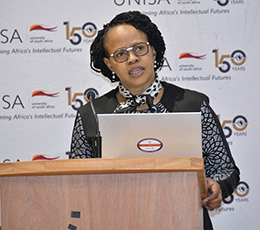
Prof Thenjiwe Meyiwa
Unisa researchers received remarkable recognition in various areas of research and innovation at the recently held R&I Awards ceremony. The week’s presentations reflected the diversity of research being conducted by the institution’s scholars. Prof Thenjiwe Meyiwa, Vice-Principal of Research, Postgraduate Studies, Innovation and Commercialisation, highlighted the core inspiration provided by the African Union’s Agenda 2063 and the UN’s SDGs.
Prof Puleng LenkaBula, Unisa Principal and Vice-Chancellor, referred to the importance of research not only being solution-oriented, but also benefitting South Africa, the African continent and the global arena. LenkaBula noted: "To achieve that, Unisa graduates and alumni must be capacitated to be as competitive as those hailing from other global institutions." She added: "Although Unisa is consistently working toward achieving the SDGs through its master’s and doctoral (M&D) programmes, it is imperative to prioritise research and development."
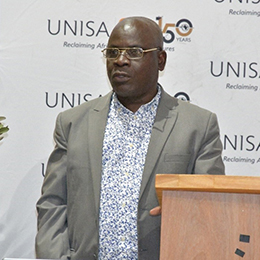
Prof Gezani Baloyi
Prof Gezani Baloyi, CGS Head of Quality Assurance and Enhancement, presented on "Postgraduate students theorising from Africa: The role of the M&D dashboard in shaping the research journey". The objective of the M&D dashboard is to improve research support that supervisors provide to Unisa’s M&D candidates. As a distance education institution, Unisa has changed what many deemed an unfavourable scenario – having to study at a distance – into a competitive advantage. While most other higher education institutions are only now migrating to distance and online education, Unisa has significant experience in this mode of teaching and learning.
The incumbent of the DSI/NRF SARChI Chair in Social Policy, Prof Jimi Adesina’s mentee, Dr Wanga Zembe-Mkabile, presented on food and nutrition security for children and their caregivers during the Covid-19 pandemic in South Africa. She reported that due to food insecurity, poor living conditions and the loss of income resulting from the hard lockdown, some study participants admitted that they were compelled to either seek or return to work, despite it being unsafe to do so. For them, the dilemma involved choosing between hunger and the risk of death from a contagious virus.
Discussing social policy design, Adesina noted that such policies tend to be poverty-centric, being framed by poverty thresholds. One of the challenges identified through a qualitative study in the South African context, was that there is no marked difference between people who live on the poverty line, the poor and those deemed non-poor, despite existing close to the poverty line.
Prof Malik Maaza, the incumbent of the UNESCO-Unisa Africa Chair in Nanosciences and Nanotechnology, spoke about their collaboration with Nanosciences African Network. Their joint research has, amongst others, enabled them to address food security through the fabrication of nanofertilisers for farming, by making use of calcium carbonate. Notably, the study was conducted in collaboration with postdoctoral fellows and emerging young scientists.
Clearly, Unisa’s emerging researchers are making their voices heard by conducting world-class research by Africans, for Africa.
Click here to watch the session.
#Unisa150
* By Hanli Wolhuter, Communication and Marketing Specialist and Musa Buthelezi, Intern, College of Graduate Studies
Publish date: 2023/05/31
 Unisa empowers award-winning agro-cosmetics entrepreneur
Unisa empowers award-winning agro-cosmetics entrepreneur
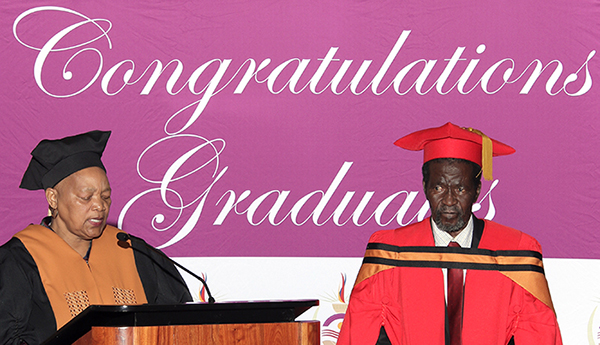 Unisa initiative offers early-career academics "a stepping stone towards greatness"
Unisa initiative offers early-career academics "a stepping stone towards greatness"
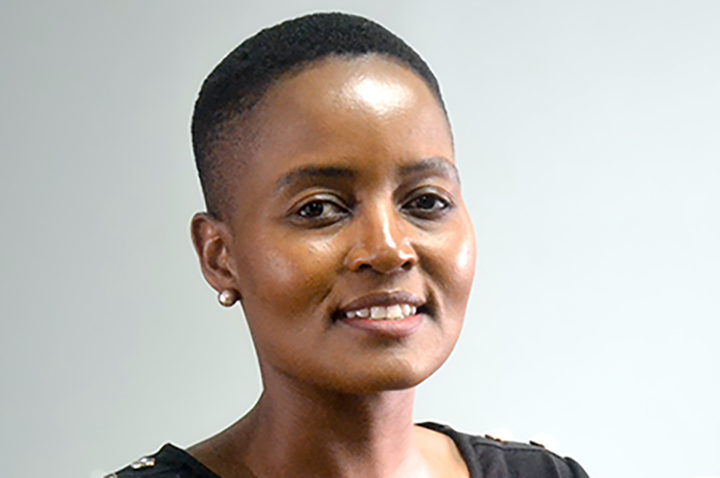 Seasoned meteorologist joins Unisa
Seasoned meteorologist joins Unisa
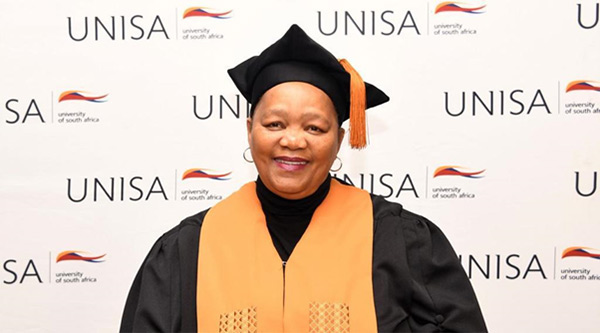 Unisa celebrates the 2023 and 2024 Hiddingh-Currie Award winners
Unisa celebrates the 2023 and 2024 Hiddingh-Currie Award winners
 Unisa celebrates a project of hope, dignity and student success
Unisa celebrates a project of hope, dignity and student success